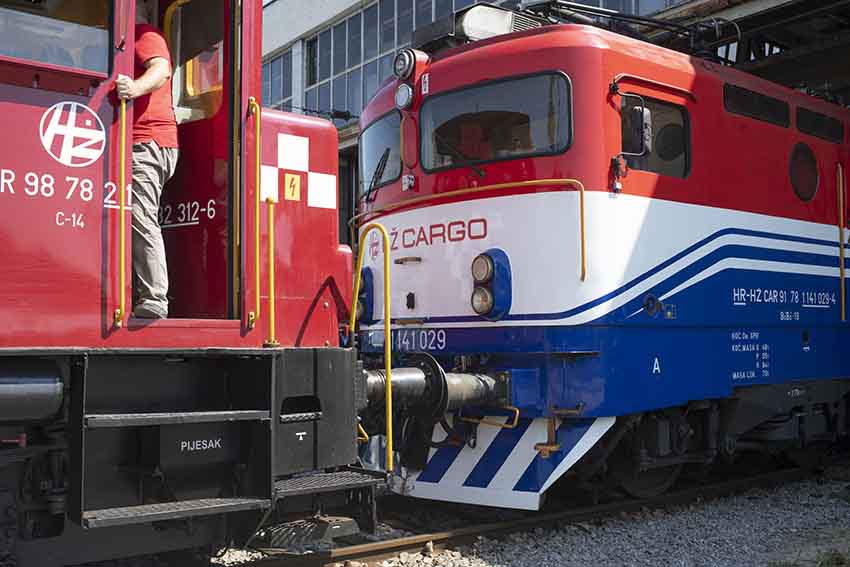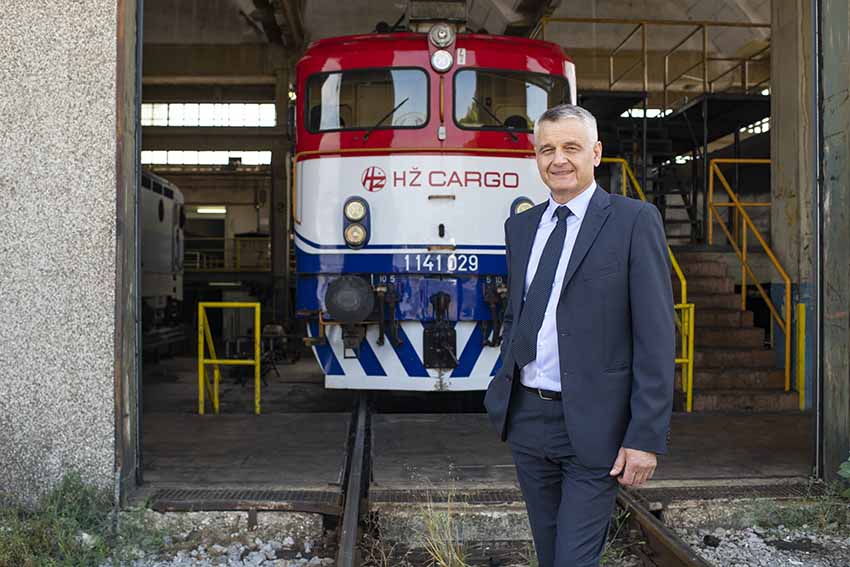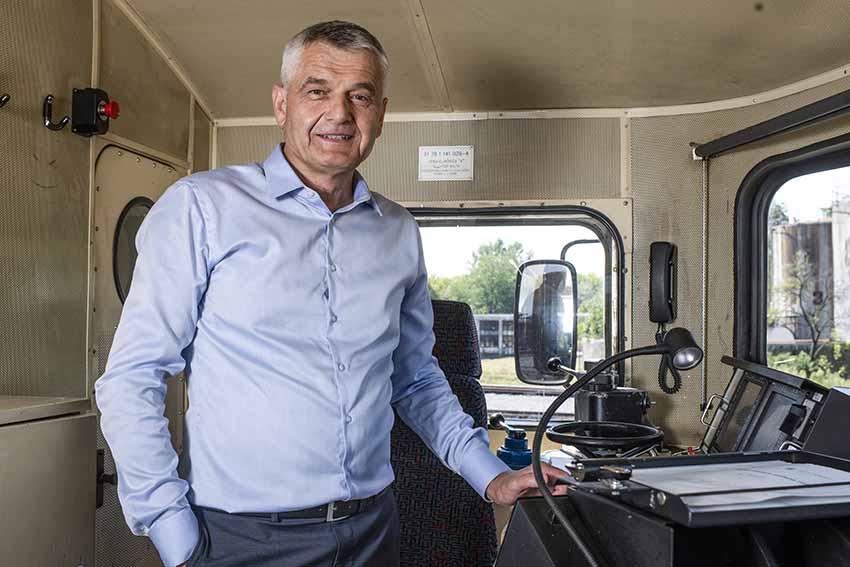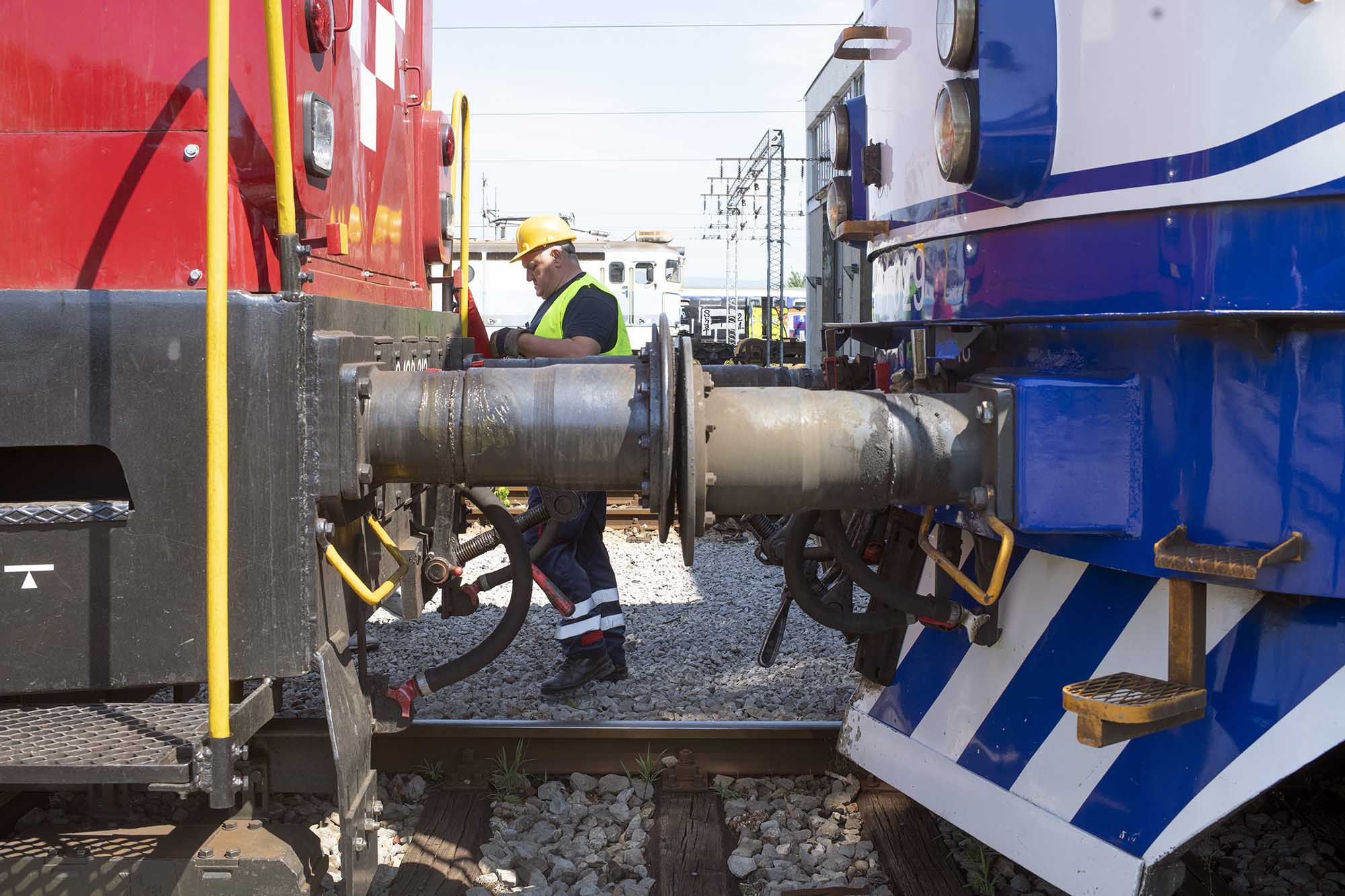HŽ Cargo is a national rail freight operator and the largest individual rail cargo carrier in Croatia that provides transport services on the domestic and international market. The company has a long history of operation and has been on tracks since 1918. Currently, HŽ Cargo employs around 1070 people and cooperates with carriers in several European countries, including Slovakia, Poland, Hungary, Germany, Austria, Romania, Bulgaria, Bosnia, Slovenia and Serbia. Their goal is to offer services in a competitive, safe, cost-effective and environmentally friendly manner. While relying on the longstanding tradition of transport operation in Croatia, the company is turning to new technologies and business solutions.
Despite all structural and historic challenges that national rail cargo operators experienced in many European countries, most notably the pandemic, inflation and the war in Ukraine, HŽ Cargo managed to retain its position as the backbone of cargo transport in Croatia. At the moment the company is undergoing financial and operational restructuring, with the aim of ensuring sustainable operations, which is also a priority of the Croatian government.
HŽ Cargo has proved to be the first company from the former Holding of Croatian Railways that can operate on a market basis, deal with competition and contribute to the development of the logistics sector in Croatia. The company still faces challenges, but is turning a new page and is focused on development, growth and the future.
Interview with Dragan Marčinko, CEO of HŽ Cargo.
Easy Engineering: What are the ranges of products and what’s the news about new products?
Dragan Marčinko: While focusing on the stabilization of its operations, our company has continued with important investments in the modernization and digitalization of its services and products. HŽ Cargo has implemented the RailPRO system, with the aim of digitizing and modernizing business processes, which is why our largest customers can now monitor the traffic of trains and cargo in real time. They can view all the documentation and the system actively contributes to the growth of labor productivity. Today’s customers expect a high level of service. They want to know in real time where their cargo is, when it will arrive and they want to monitor every change on the planned route. Additionally, our company signed a valuable contract with the Croatian electric vehicles manufacturer Končar električna vozila for the restoration of locomotives, worth more than HRK 14 million (around 1.9 million euros), which will reduce the costs and maintenance of locomotives and increase the reliability and availability of locomotives in traffic.

Our goal is to keep up with the latest developments and trends in the transport sector that is very much focused on intermodality. Therefore, we started cooperating with our partner Manšped, a logistics company, with the aim of developing intermodal transport and the Vrapče land terminal in Croatia. With this partnership we managed to create a new product on the market, through the engagement of HŽ Cargo with the added value of Manšped, in line with trends of intermodal services offered in Central and Western Europe. Additionally, we rented four new modern Siemens Vectron type electric locomotives, which further modernizes our operations and enables us to better cope with the changed circumstances on the market.
Our company is aware of the importance of new knowledge and expertise and is continuously hiring new workers and trainees from various professions, with the aim of transferring knowledge, reducing the average age of our employees, and ensuring long-term sustainable business.
E.E: At what stage is the market where you are currently active?
D.M: Since 2013 the rail freight transport market in Croatia has been undergoing liberalization and today HŽ Cargo is one of ten carriers operating in Croatia on a competitive liberalized market. As you probably know, all national operators around Europe saw a decline in their market share due to the process of liberalization and HŽ Cargo was not an exemption. However, we have shown that we can deal with the competition and defend our market share, which is currently at 52 percent (expressed in NTKM). More specifically, when compared to all other rail cargo carriers in the second quarter of 2022, HŽ Cargo had the largest share of train kilometers, which amounts to 52.5 percent.
It should be mentioned that Croatia is a small market in general, especially for rail cargo carriers. It is limited to short distances and the road infrastructure is significantly better than the railway infrastructure. It therefore comes as no surprise that the road transport is the biggest competitor to rail transport in Croatia. 85 percent of goods (measured in tons) are transported by road and only 15 percent by railway. However, in recent years there has been a clear trend of growth in rail cargo transport compared to road transport, around 1-2 percent per year.

The situation with the pandemic and the war in Ukraine confirmed what we already knew, that the railway has great advantages compared to other forms of transport. Ukraine was a “secondary” entrance for goods coming from China to Europe by rail, so now alternative railway routes are being created to connect the ports in Northern Europe and the Adriatic region. The route changes have caused great interest in the Croatian transport infrastructure, which can also be seen in the larger quantities of transported cargo. The increase in demand can still not be fully utilized, due to frequent railway closures in Croatia that lead to increased transit time. This represents a major operational problem for all railway operators and it is an issue for the entire market.
E.E: What can you tell us about market trends?
D.M: At the global level, rail transport is recognized as important for the development of smart, sustainable and green transport. At the EU level, the railway is increasingly seen as an important factor for achieving the transition towards a clean, digital and innovative EU economy. Rail transport is the only form of transport that has consistently reduced its emissions and energy consumption between 1990 and 2017, while increasingly using renewable energy sources. Logically, the EU therefore plans to double freight rail’s modal share by 2030, both to reduce the transport sector’s CO2 emissions and to ease the congestion of major road connections. Large investments are needed in order to achieve this ambition, and the problem is that many countries are not implementing them. There are of course some exceptions, such as Germany.
All this shows that the railway sector provides a great opportunity for innovation and further development. Greater emphasis is placed on intermodality and cross-border cooperation. The railway sector works best when it is part of a larger interoperable system.
E.E: What estimations do you have for the rest of 2022?
D.M: As a result of a series of activities aimed at ensuring liquidity, optimizing operations, contracting new business deals, but also several new investments in modernization, HŽ Cargo achieved growth in key business indicators in 2021. The positive developments in 2021 continued in the first half of 2022. In the first nine months of 2022 the total revenue grew by 31 percent compared to the same period in 2021, transport revenue grew by 19 percent and EBITDA by 18 percent. The EBITDA margin increased from 5,7 percent to 5,8 percent and productivity per worker increased by 29 percent. Almost HRK 35 million, around 4,6 million EUR, were invested. Since we managed to contract new business deals, there was a 7 percent increase in transported tons, which is very significant.

E.E: What is the future of HŽ Cargo?
D.M: I think that the future is bright, but from the sustainability and long-term solvency perspective, the only solution is restructuring and settlement with the Croatian state. The government of the Republic of Croatia and the Ministry of the Sea, Transport and Infrastructure are in intensive communication with the European Commission, and I believe that we will get the green light for the proposed restructuring plan. I believe that no one wants the alternative scenario, which is bankruptcy, the costs of which would be really high, much higher than the cost of restructuring. Another reason why I believe in restructuring and the settlement with the state is that Croatia, through Croatia’s National Recovery and Resilience Plan NRRP, has committed itself to reforming the railway sector and specifically to finding an appropriate solution for the long-term sustainability of HŽ Cargo’s operations. The document clearly states that a company restructuring plan will be drawn up in accordance with the guidelines on state aid for rehabilitation, which will ensure the long-term viability of HŽ Cargo. Therefore, abandoning the restructuring could potentially cause a failure in meeting the targets set within the NRRP and consequently, lead to a loss of a part of the total amount of tranches. On the other hand, this would also cause reputational damage to the state, as HŽ Cargo would become the first national cargo operator in Europe to go bankrupt. That is why I really believe that during this year we will agree on the plan and the settlement. And only then can we talk about strategic partners.

